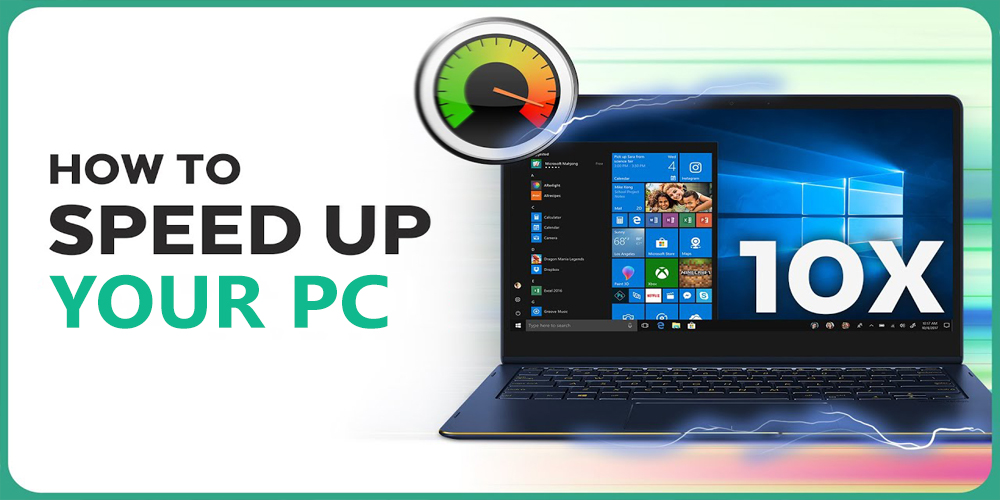If you're like most people today, your computer is the first thing you talk to in the morning and the last thing you talk to at night. For many of us today, it is our livelihood and financial support. Therefore, when it starts to be slower than my husband, it is more than frustrating.
If you're using Windows 7, 8, or 10 and are having problems, we want to share some tips for dealing with a slow and sluggish computer. This will save you from anger and frustration, keep your blood pressure down and get you back on track:
Tips to Speed up Your Computer
1. Programs: Not Using It – Uninstall It
Pre-installed programs on new PCs slow down your computer from the start and keep piling on more, and it's likely that you won't use them. often known as junk ware, bloatware, or clayware; it frequently acts as an advertisement for the company from whom you bought your computer.
Co-op advertising could be a collaborative effort between a software business and a big box store. These can accumulate over time on older PCs. Many of these are operating continuously in the background without your awareness, and many of them are things you will never use. Your PC is being slowed down by them.
Take the following actions to get rid of this bloat ware, either on the day you purchase your computer or later on: Start>Control Panel>Features and Programs. Then scroll down the list, then uninstall the ones you won’t use. There are software programs that can help you choose which ones are practical for you.
2. Temporary: Delete
Every time you browse the Internet, the history remains on your computer. After installing something on your computer, a lot of unnecessary "junk" remains, taking up space and slowing down your computer. To remove this "mask", follow these steps: My Computer > Primary Drive > Windows > Temp, then right-click on the temp folder, go to Options and select Details. Once you're done, select all files that have grown today and click Delete. Then, take out the trash!
3. The drive: strong and powerful
If your computer takes forever to turn on or boot, the hard drive may be the problem. Since there are so many moving parts, it takes them a long time to move. Switch to flash memory and it will read data faster, allowing your computer to boot up faster.
4. Security: More of it
Even if you keep your computer clean and tidy, the hard drive will always be full and slow down your computer, especially if you do a lot of media and video recording. Buy a 1TB mega storage drive for these records and free up space on your computer.
5. Start: Eliminate unnecessary people
Every time you turn on your computer, the program starts automatically. If you don't use them every day, there is no need to start them right away. Clean the ones you don't use by doing the following: Start > type RUN > type MSConfig in the box > Click the "startup" tab and remove the ones that are not necessary for your daily work. Leave the antivirus alone.
6. RAM: increase it
Do you use multiple applications at the same time, such as your email, Internet browser and Word? Does your computer lag when you switch from one to another? You can upgrade the RAM cheaply and solve this problem.
7. Defragmentation: Run disk defragmentation
It sounds scary, but it's not. It is an easy way to increase the performance of your hard drive. Follow these steps: My Computer > Right-click on the hard drive > select Properties > Tools > Defragment Now.
8. Disk: Run cleanup
Your computer can benefit from water cleaning by following these steps:
Start>All Programs>Apps>System Tools>Disk Cleanup
9. Dust: Dust and Vacuum
You should wash and clean your computer regularly. Computers produce a lot of dust from the cooling fan and block the air. Computers work best when it's cold, so ventilation should be good enough to prevent your computer or laptop from overheating and slowing down.
Turn off your computer and wait 30 minutes. Using your vacuum cleaner on the lowest setting and very carefully, clean the dust inside your computer. Another option is a can of air to blow away the dust once a week.
10. New computer: buy a new one
If your computer is old, it may be time to get a new one. Today the most popular thing is tablets, so computers and their accessories, desktops and laptops are cheaper than they were just a few years ago.


